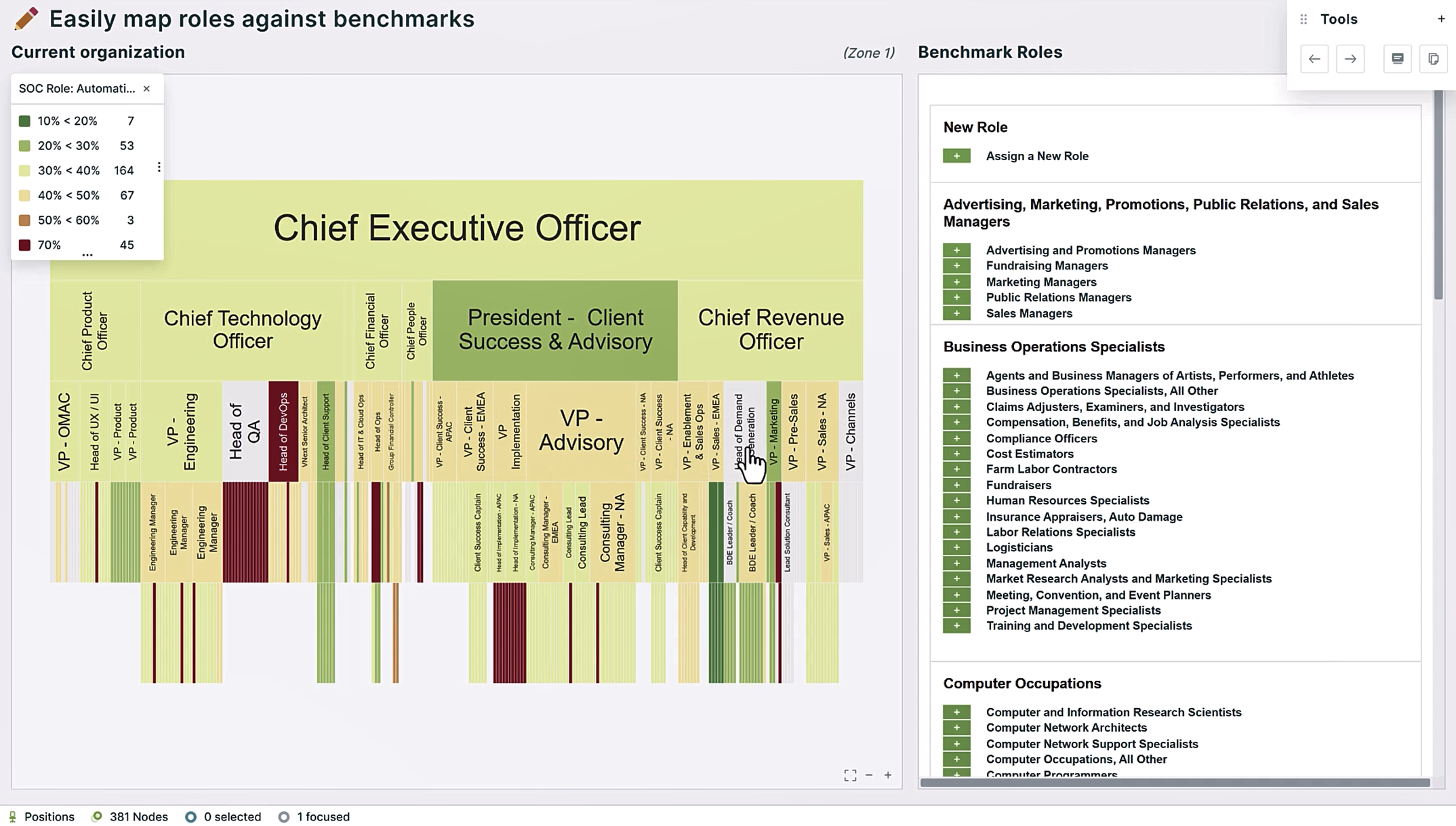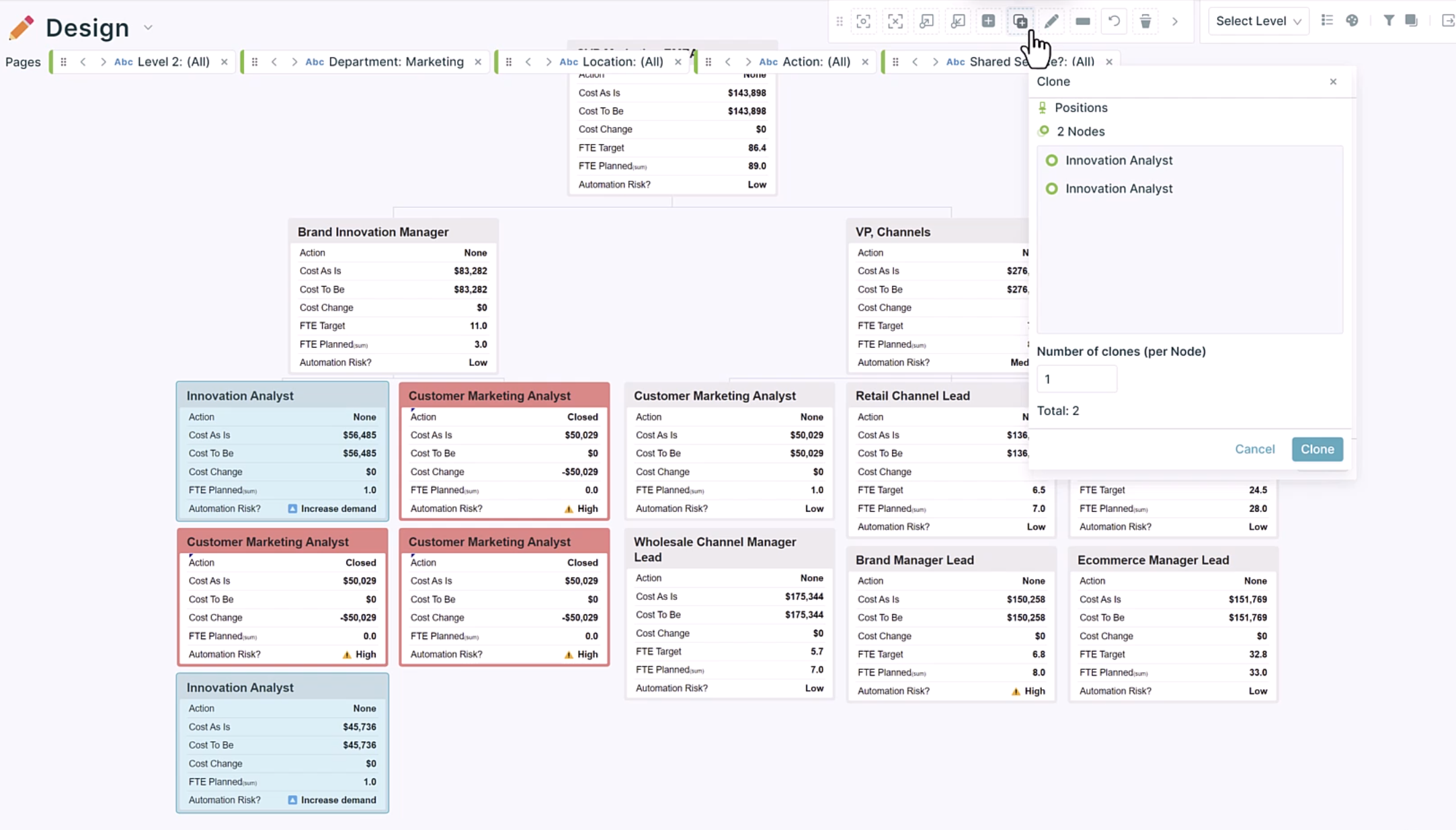The changing nature of work
AI is impacting businesses everywhere and organizations are rethinking the way work is done. But many are unsure how to manage this in practice, where to invest first, and what it will mean for their workforce structure and skills supply.
Businesses need to think productivity, innovation, and agility. It’s not only about introducing new technology, leaders should also ask themselves: How will these technologies affect the workforce? What tasks are most likely to benefit from automation or generative AI? Will technology displace or augment the work people do? What new skills will be needed and where?
69%
say AI will be the main source of workforce transformation over next 3 years
93%
think preparing the workforce for AI is challenging
50%
don’t yet understand the impact AI will have on their business
Challenges organizations face from AI
AI is driving technological, social, and economic change and organizations are under pressure to rethink their workforce quickly. At the same time, change fatigue is high among employees and managing future changes in a less disruptive way will be important.
The journey presents its own challenges. Some of the most common ones are:
- Organizational visibility: How can you gather and visualize data effectively?
- Skills gap: Do your employees have the right skills to optimize use of AI?
- Training and upskilling: What strategy can you put in place to bridge the gaps?
- Change fatigue management: How can you transform the workforce with minimal disruption?
- Risk and security: Do you have the right processes to protect your organization?
01
Take control of data
Know your workforce, the skills they have, and the work they do today, so you can understand the impact AI technologies will have on people and work, now and in the future.
02
Reveal automation potential
Understand jobs, skills, and activities in detail to reveal opportunities to use AI that will increase productivity, efficiency, and cost savings.
03
Be proactive and adaptive
Continuously reassess organizational capabilities, so you can model and adapt quickly to changes driven by AI and other emerging cognitive technologies.
Why it works
Orgvue allows you to analyze, design, plan, and monitor your workforce, and gives you control through people-centric transformation and data-driven risk management. It allows you to identify how AI will affect jobs – whether they’re displaced, created or augmented – so you can model and plan accordingly.
- Centralized and trusted workforce data
- High visibility on workforce activities and skills, and more, and reveal AI-supported work
- Advanced modeling capabilities – from prioritization of work, to automation, upskilling or reskilling
- Accelerated transformation and minimized risk
- Ability to adapt through increased organizational agility
- Ongoing tracking and monitoring
- Interconnected ecosystem with APIs and connectors
How Orgvue works
Orgvue allows you to move beyond organizing your workforce based solely on headcount and roles. Instead, focus on different elements of the workforce ecosystem, such as work, activities, skills and competencies.
External benchmarking: Evaluate AI’s impact on roles
Plug in existing benchmarks into your current organization and understand what roles might be affected by AI. Answer questions such as:
- Which roles are going to be most affected by HR?
- Which department should I focus on first?
- Where do I have the highest risk of automation?
- What does it mean for leaders in terms of headcount and cost?
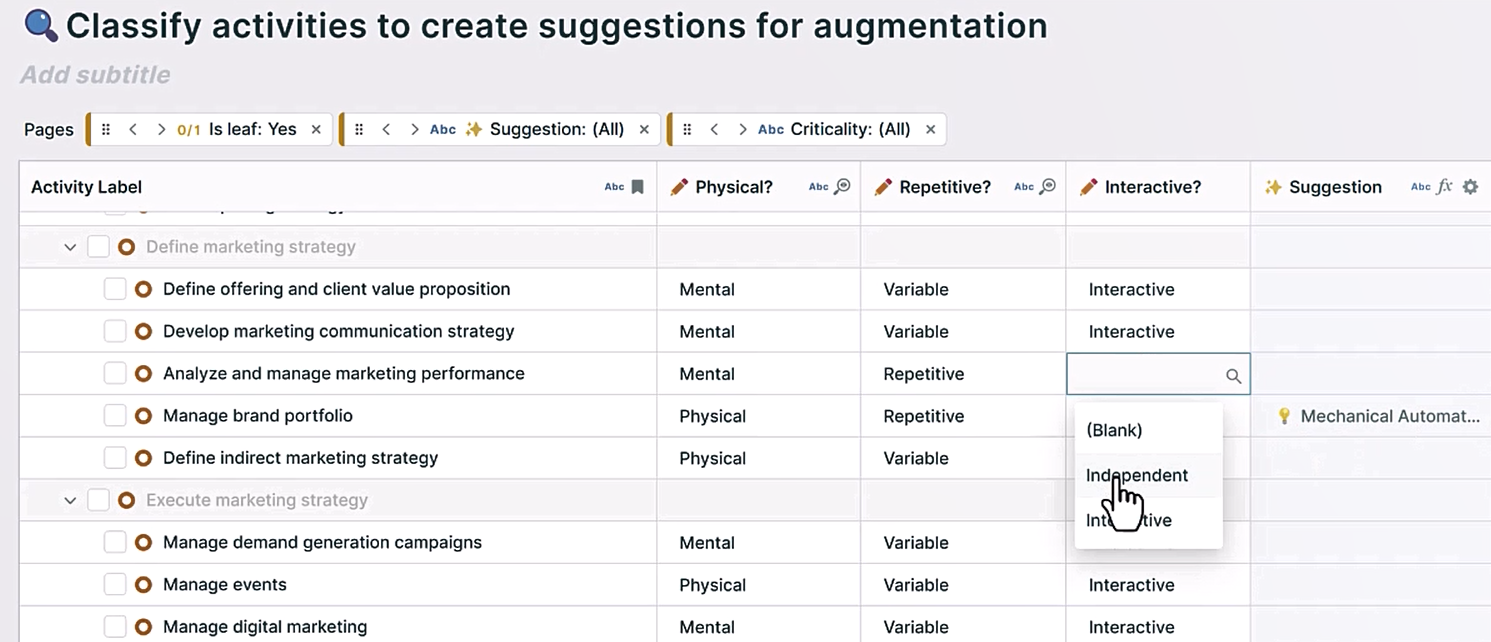
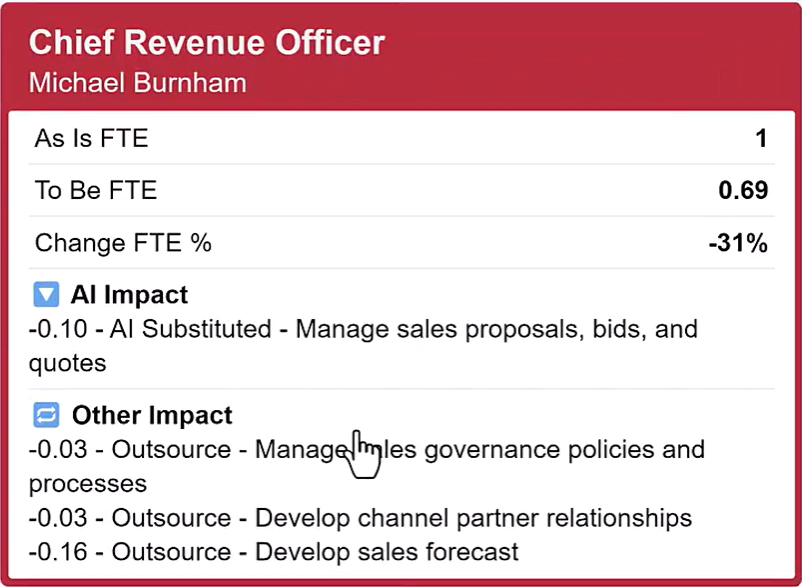
Activity analysis: Understand the impact of AI on specific activities or roles
Go into a more detailed analysis, looking at individual activities or tasks. This includes classifying specific tasks to reveal opportunities for automation, performing changes, and seeing the impact of those changes on your business. Answer questions such as:
- What activities should I automate?
- What happens if I automate specific tasks?
- What do the changes mean at a business level? And how does it impact teams?
Organization modeling: Model changes and design your future organization
Model changes to your future organization using Orgvue’s drag-and-drop functionality. This includes closing, creating or changing positions, and instantly seeing the impact of those changes on your business. Answer questions such as:
- What happens if delete positions?
- What happens if I clone a position?
- How do changes impact my business financially?
- What’s the best scenario for my organization?
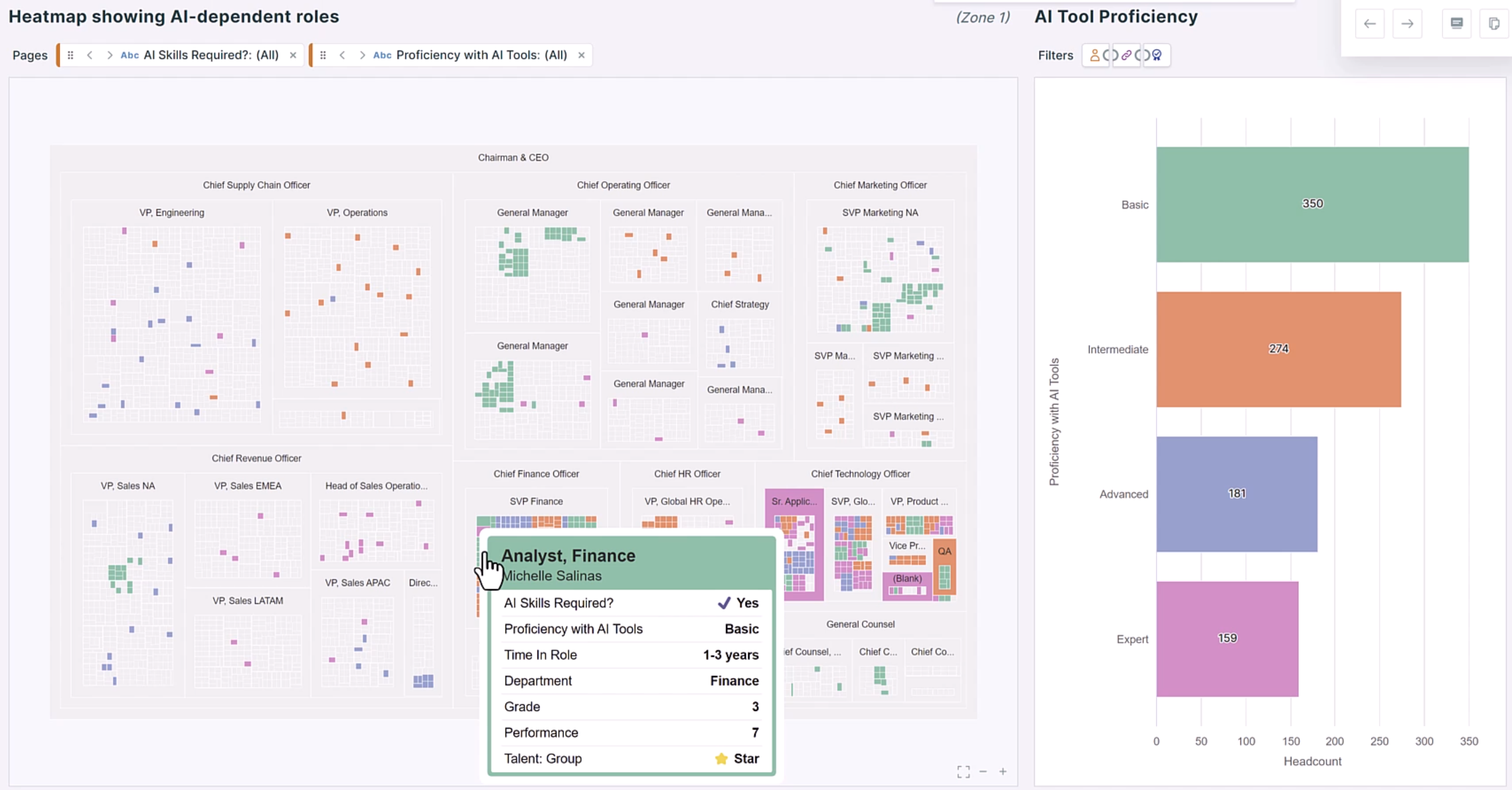
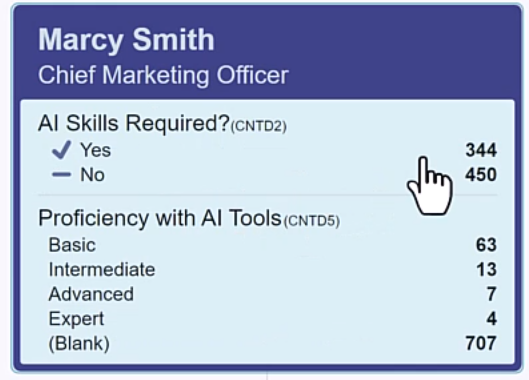
Analyze the skills gap: Look at the skills you have today, the ones you need, and the gap between the two
Understand what skills you need to close the skills gap associated with AI. Answer questions such as:
- Which critical skills do you have today? Where are they?
- Which roles require AI skills today?
- Which skills are going to be impacted by AI?
- How can you prioritize actions, based on skill availability, potential upskill, or difficulty to hire?
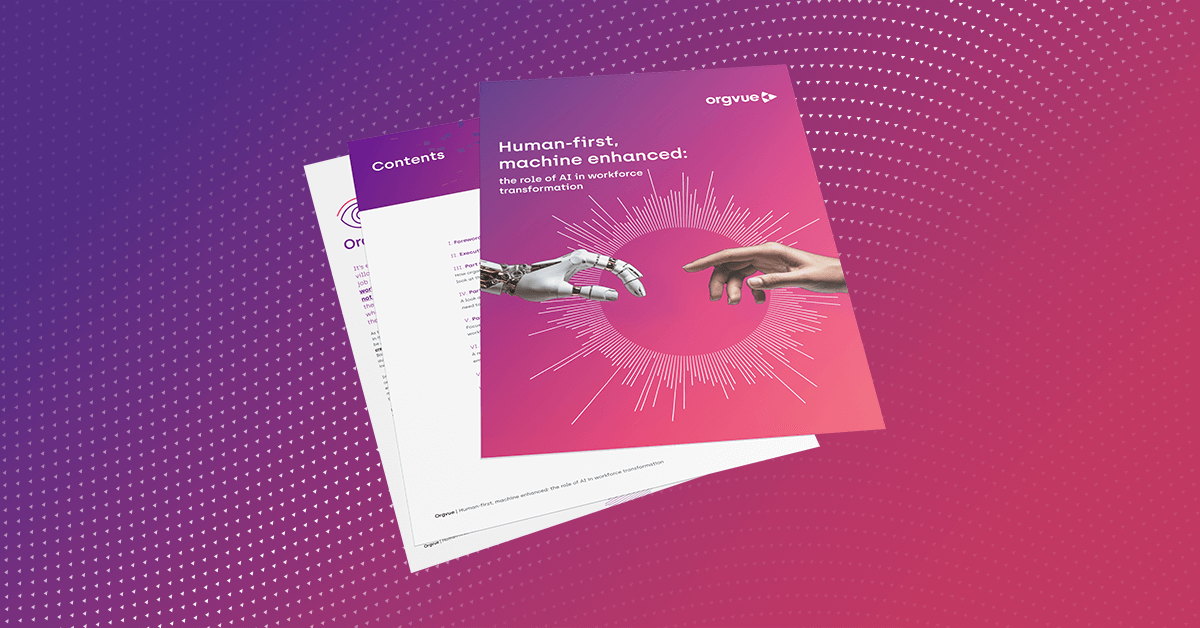
Human-first, machine enhanced: the role of AI in workforce transformation
This report provides a ‘State of the Nation’ perspective on AI and workforce transformation. Presenting the views of 1,000 business leaders in the United States, the United Kingdom, Canada, and Ireland, we explore:
- How businesses are investing in AI for workplace transformation
- The main challenges to overcome in the transition to an AI-assisted workforce
- The practicalities of introducing the technology into organizational structures
- How different countries and industries compare in their approach to AI
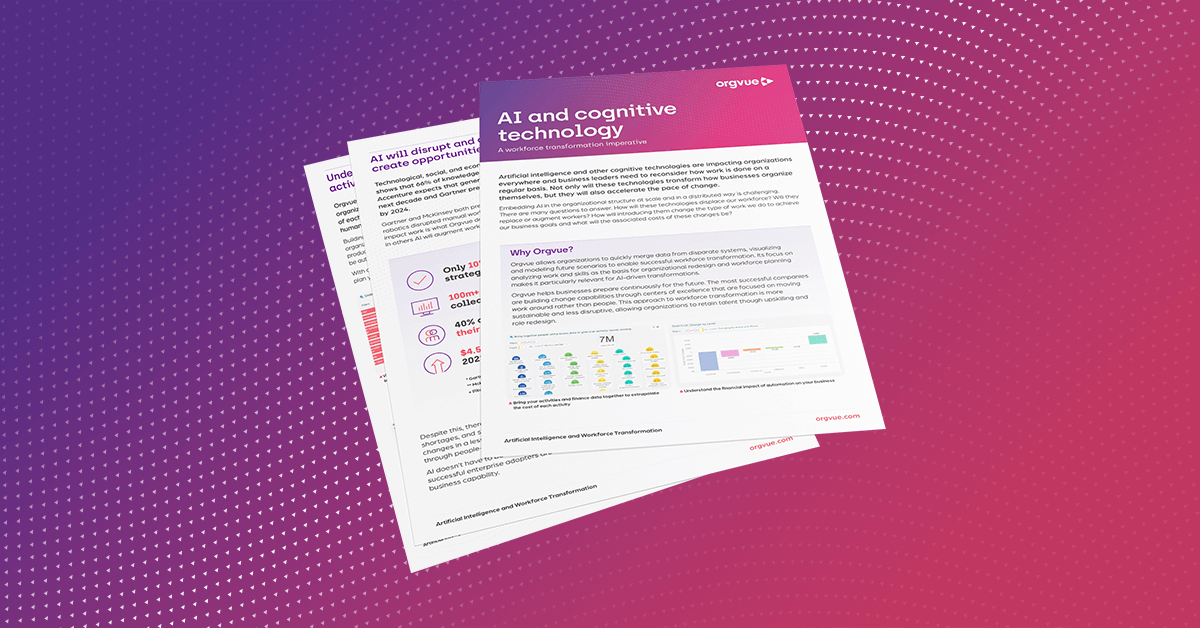
AI and cognitive technology solution brief
Artificial intelligence and other cognitive technologies are impacting organizations everywhere and business leaders need to reconsider how work is done on a regular basis. Not only will these technologies transform how businesses organize themselves, but they will also accelerate the pace of change.
Read our latest solution brief and learn more about how we can help you with:
- Understanding the work your organization does through activity analysis
- Modeling your future skills demand
- Introducing AI to close talent gaps
Book your free demo
Design your business of tomorrow, today. Discover what Orgvue can do for your organization first-hand.
